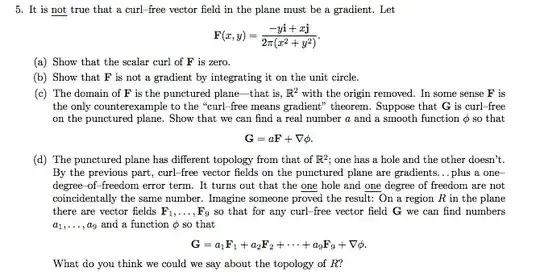I tried to prove this problem using the Helmholtz decomposition theorem, but it seems the two are entirely contradictory--thus leaving me with empty hands. Does anyone know how to proceed?

Thanks
Moehringer
I tried to prove this problem using the Helmholtz decomposition theorem, but it seems the two are entirely contradictory--thus leaving me with empty hands. Does anyone know how to proceed?

Thanks
Moehringer
Read an answer here: Helmholtz decomposition contradictions PDF https://www.academia.edu/34072970/Helmholtz_Decomposition_Remains_Opened_for_Future_Researchers
Read an answer here: Helmholtz decomposition contradictions PDF http://analysis3.com/Helmholtz-decomposition-contradictions-pdf-e117376.html